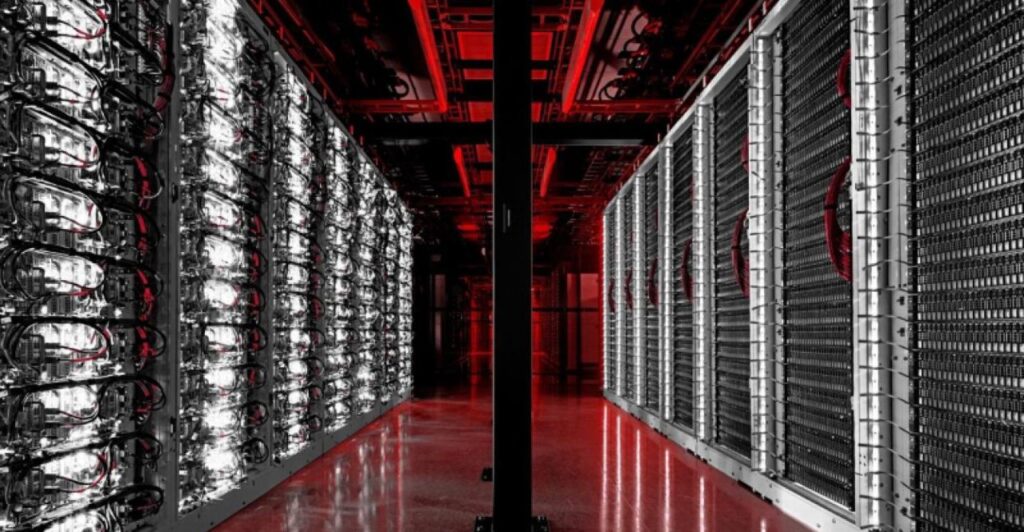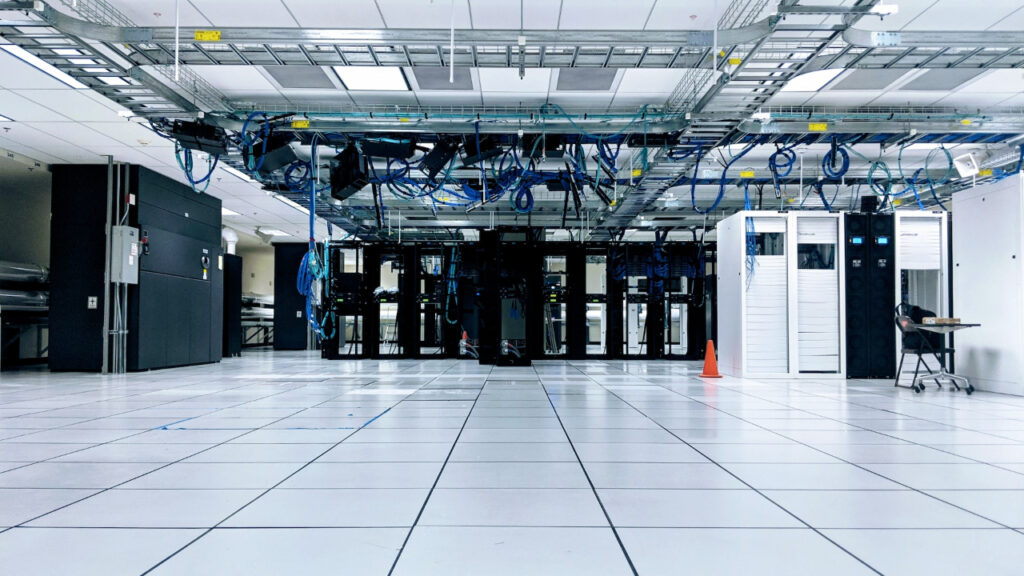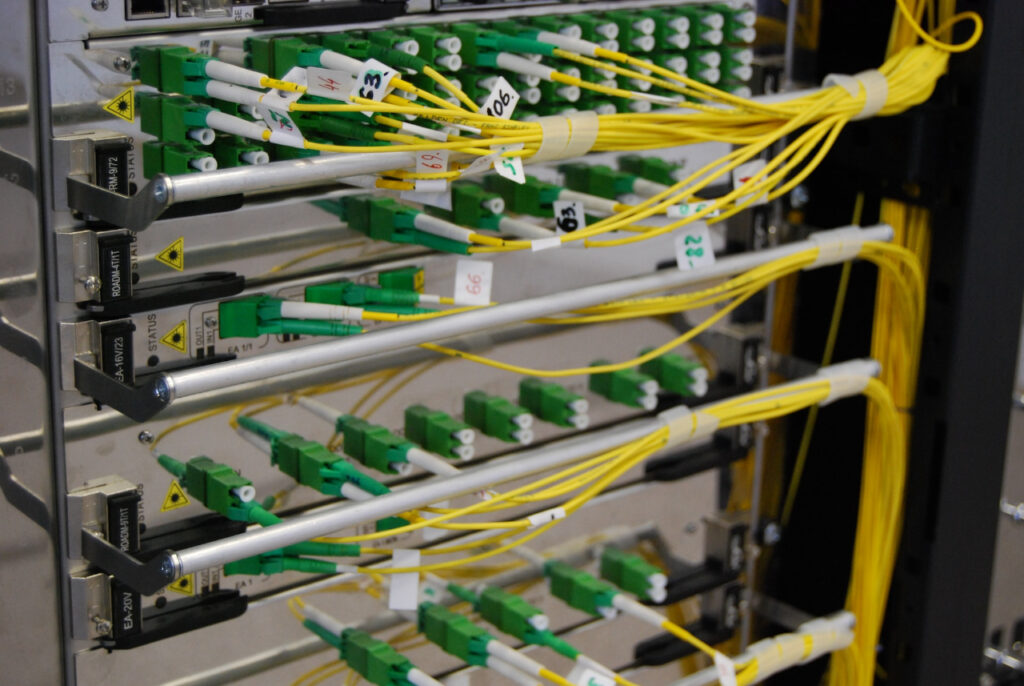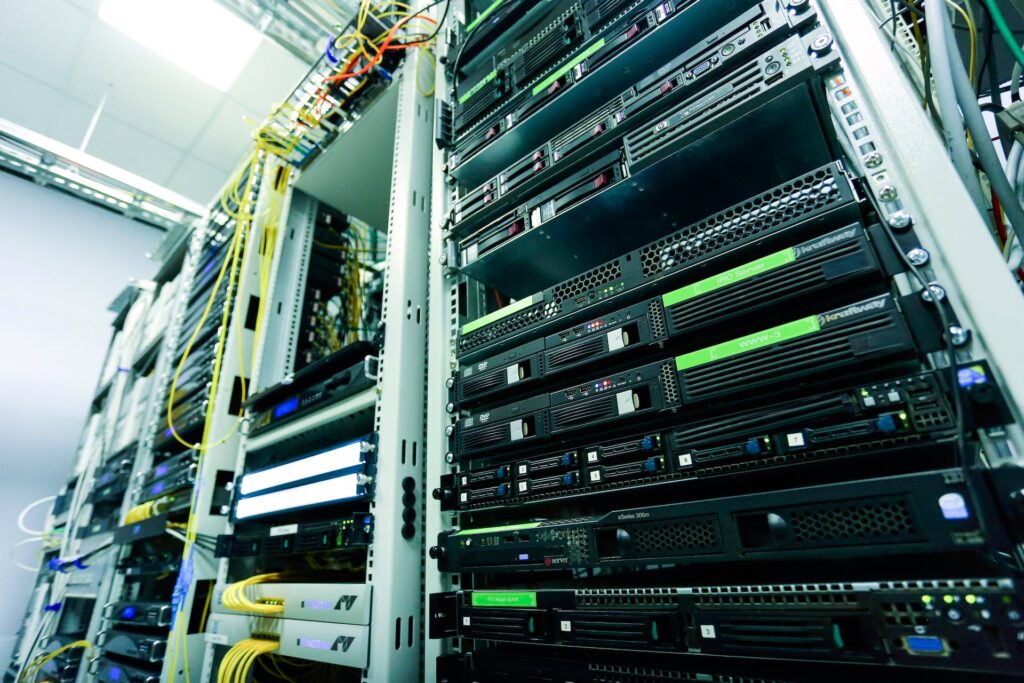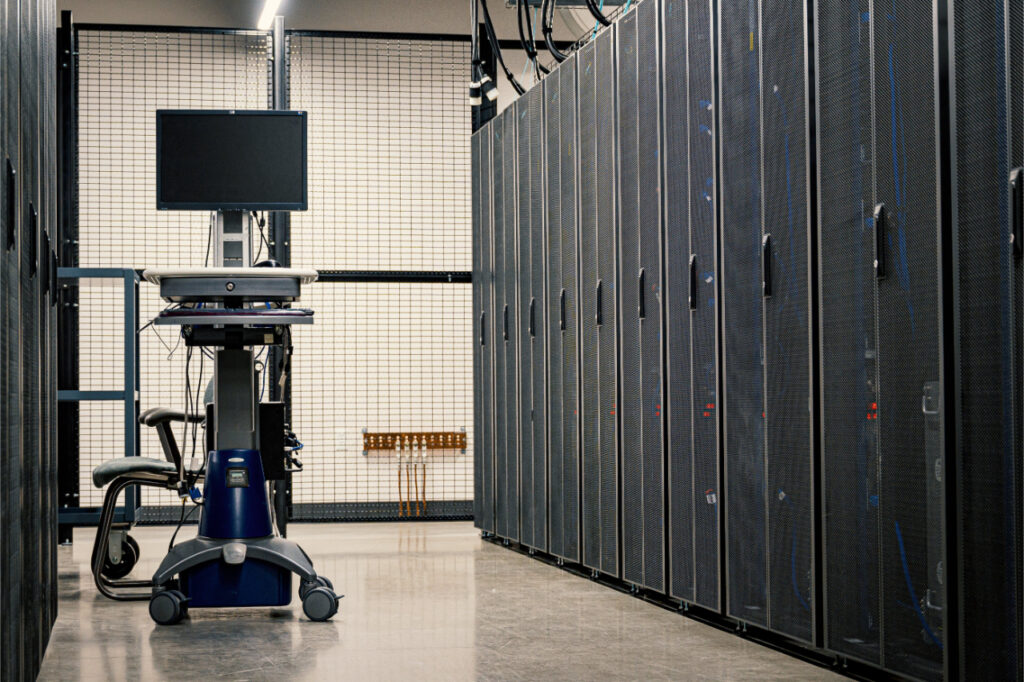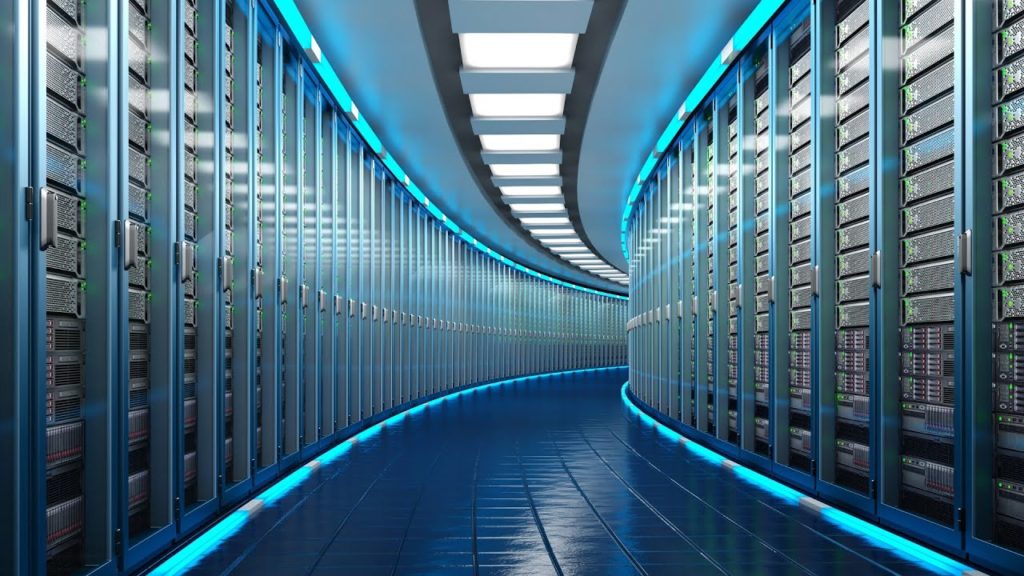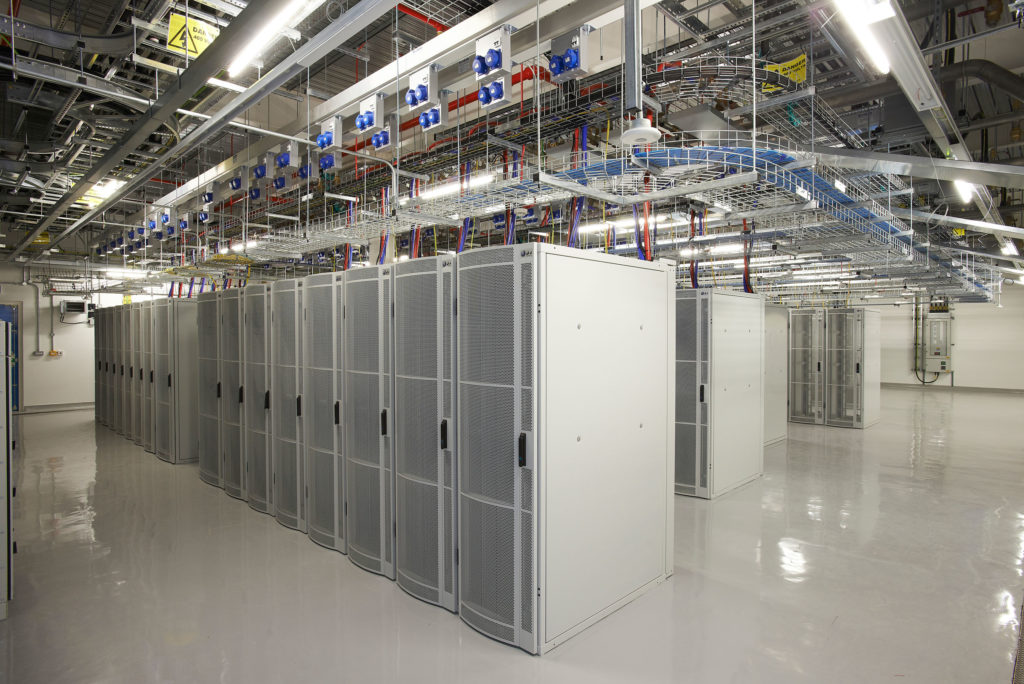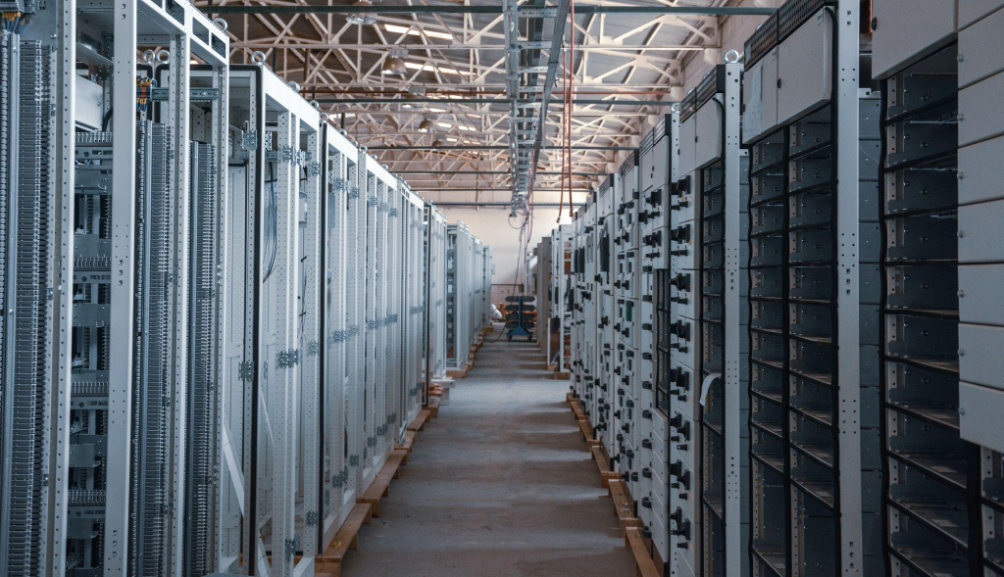In today’s data-driven business landscape, selecting the right data center configuration is crucial for ensuring the success and continuity of your organization. However, conducting a comprehensive assessment of each potential data center can take time and effort.
There are several industry standards that make your job easier and help you make an informed decision. These standards provide guidelines for designing, constructing, and operating data centers. Besides, they also divide them into categories based on their infrastructure capabilities.
One such globally recognized standard is ANSI/TIA-942. In this article, we will explore the ANSI/TIA-942 standard, its significance, and the different rating levels it defines.
What is the ANSI/TIA-942 Standard?

The ANSI/TIA-942 standard, developed by the Telecommunications Industry Association (TIA) and sanctioned by the American National Standards Institute (ANSI), serves as a valuable framework for designing, building, and operating data centers.
It aims to ensure that data centers meet specific requirements in terms of availability, reliability, security, and sustainability. Upon receiving ANSI/TIA-942 certification, data centers are categorized into one of four levels.
ANSI/TIA-942 Standard Rating Levels
The ANSI/TIA-942 standard establishes four rating levels, or tiers, which define a data center’s reliability and redundancy level.
Each tier represents a specific level of performance, reliability, and network resilience, enabling organizations to choose the appropriate tier based on their operational requirements and budget.
Tier 1

Tier 1 is the basic level, providing the least redundancy and fault tolerance. It offers a single path for power and cooling distribution without any redundant components. Tier 1 data centers offer limited availability and can experience planned and unplanned downtime. So, they serve as a suitable option for small businesses or non-critical applications that can tolerate occasional interruptions.
Tier 2
Tier 2 data centers introduce some level of redundancy to critical infrastructure components but have a single, non-redundant distribution path. Tier 2 data centers offer improved availability compared to Tier 1. So, they are suitable for organizations requiring higher uptime but can still tolerate occasional interruptions.
Tier 3

Tier 3 data centers are designed to provide higher redundancy and availability. They have multiple independent distribution paths for power and cooling systems, allowing for maintenance or equipment failures without affecting operations. Tier 3 data centers offer protection against the most physical events. So, if your organization requires continuous availability for critical applications and services, this is your solution.
Tier 4
Tier 4 is the highest level of data center reliability and availability defined by the ANSI/TIA-942 standard. These data centers provide the highest degree of fault tolerance and redundancy. This is because they have multiple active power and cooling distribution paths. It minimizes the risk of downtime due to equipment failures or maintenance activities. Besides, Tier 4 data centers are typically chosen by organizations with mission-critical operations that cannot afford interruptions.
AiNET’s data center is tier-4 certified by the ANSI/TIA-942, which means we offer the highest level of reliability with minimum downtime. Learn more about our data center infrastructure and choose a hosting plan that suits your needs. Get in touch with us today!
The world of data centers is as vast and complex as the digital universe itself. With so many options available, comparing virtual and physical data centers can be intimidating and difficult to navigate.
To help make the decision easier, this article will provide an overview of the key differences between these two types of data centers so that you can determine which best fits your needs.
What Is a Virtual Data Center?
A virtual data center is a cloud-based computing environment in which all resources are stored on remote servers hosted by service providers instead of on-premises hardware. It combines server, storage, networking, security, and software components into one unified platform for efficient management and scalability.
This type of data center is ideal for organizations that need a low-cost and high-performance data infrastructure.
What Is a Physical Data Center?
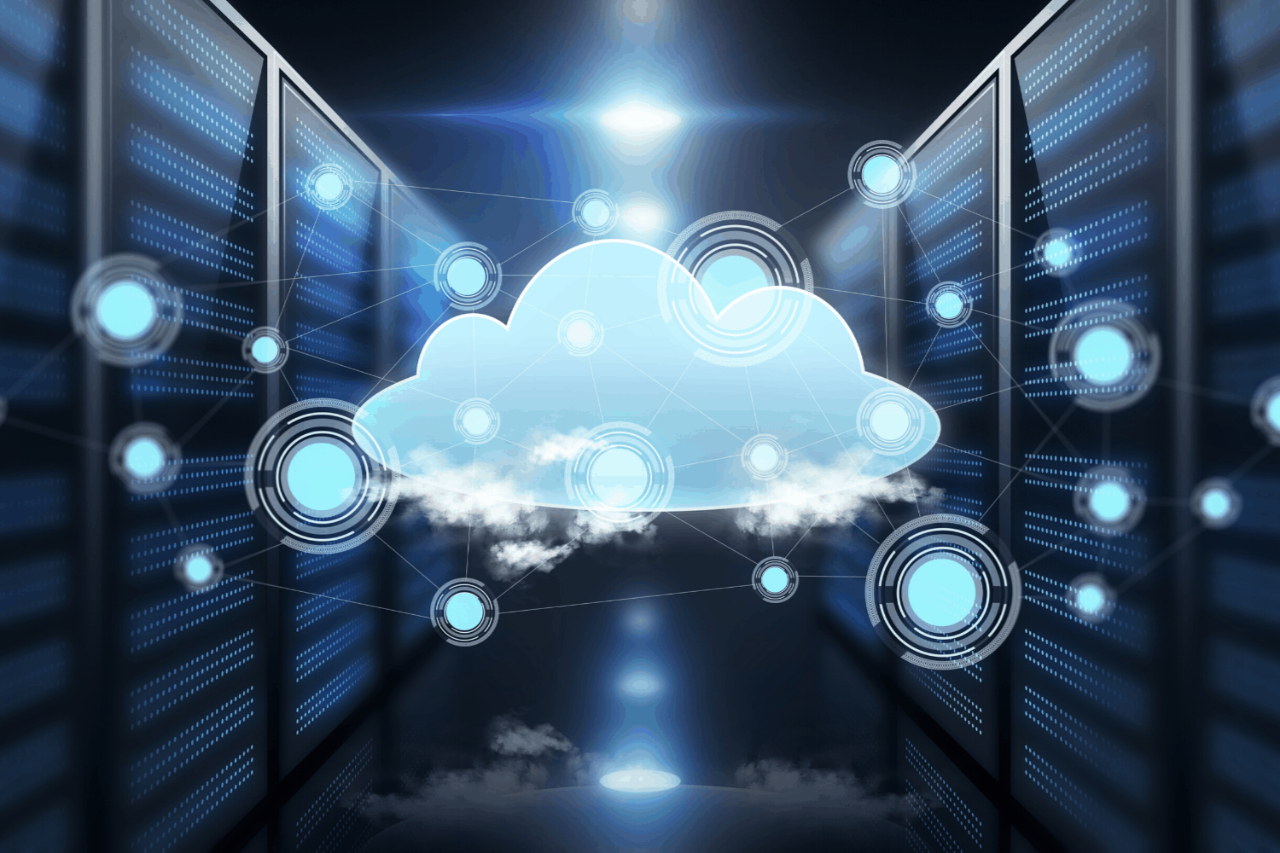
A physical data center is an on-premises solution that houses all of your hardware in one physical location. It includes servers, storage, networking equipment, software, cooling systems, and other necessary components.
This setup allows for better control over the hardware and environment since it is located right in your organization’s building. However, this option requires more maintenance due to its size and complexity.
Data Security: Comparing Virtual vs Physical Data Center
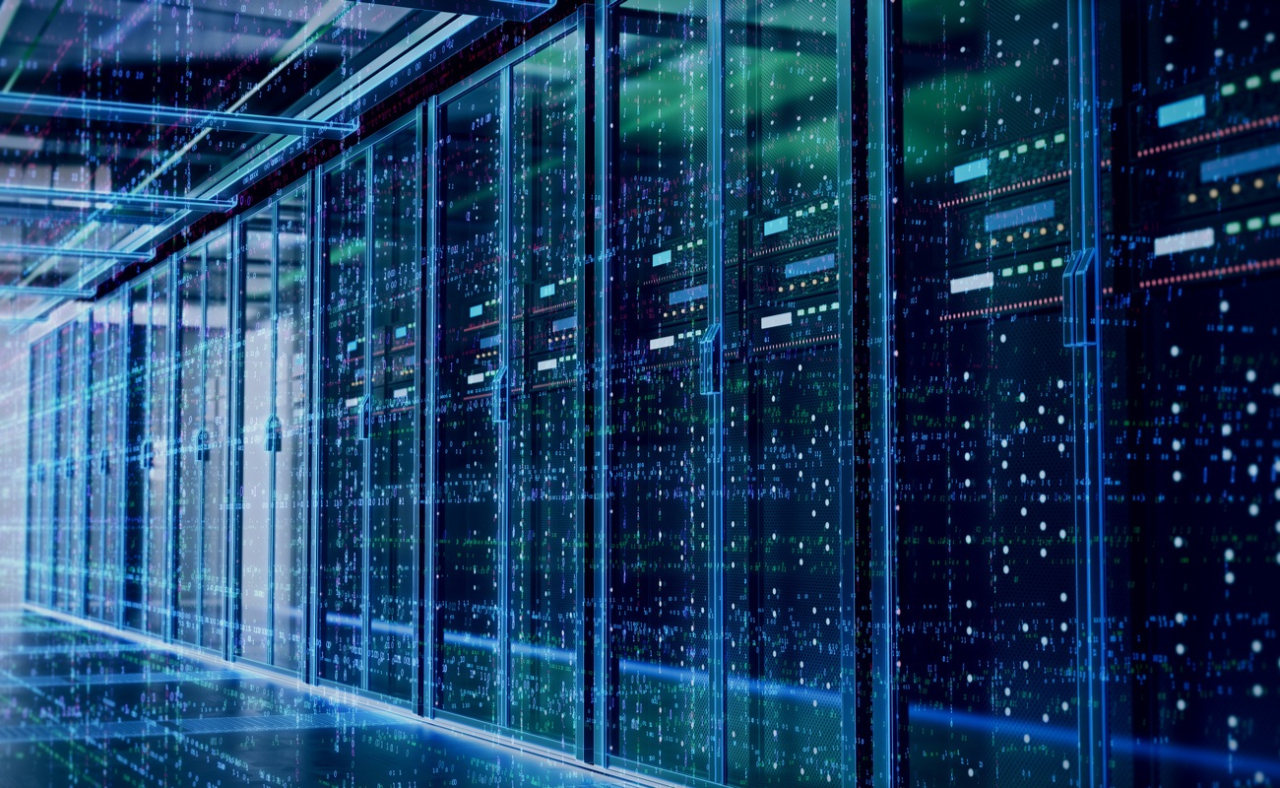
When it comes to security, virtual data centers generally offer greater flexibility. These providers allow you to manage access levels on a granular level using their in-house security tools as a third party manages their hosting.
Furthermore, virtual data centers are typically monitored and updated more often than physical ones, allowing for better protection against cyber threats.
However, physical data centers can provide superior levels of security due to their isolated nature. Every piece of hardware is physically secure from outside access, and the environment can be tightly controlled for optimal performance.
Cost Comparison: Virtual vs Physical Data Center

The cost associated with virtual data centers is typically lower than that of physical ones. Primarily because they do not require upfront hardware purchases or maintenance costs.
Generally speaking, you only pay for what you need in terms of storage space and computing power. So, if you are a smaller organization on tight budgets, it’s am ideal solution for you.
On the other hand, physical data centers require upfront investments and ongoing maintenance costs. So, they can be expensive in the long run. However, for larger organizations that demand very high levels of security and control, physical data centers may be the better option.
About AiNET
AiNET is a trusted provider of cloud storage and fiber optic internet services for businesses. With secure, scalable solutions and reliable high-speed connectivity, AiNET can offer the perfect online storage solution to meet your business needs.
Visit us today to learn more!
The data center business is an ever-evolving industry with incredible potential for growth and development. With new technologies, software solutions, and hardware capabilities being introduced constantly, the opportunities to explore are endless.
The data center business has become a cornerstone of many organizations, providing reliable hosting services and storage solutions that allow customers to access their data in an efficient manner.
In this article, we will explore some of the possibilities in the data center business. also, we will look at how organizations can use this technology to improve their performance and maximize their profits.
Data Center Infrastructure
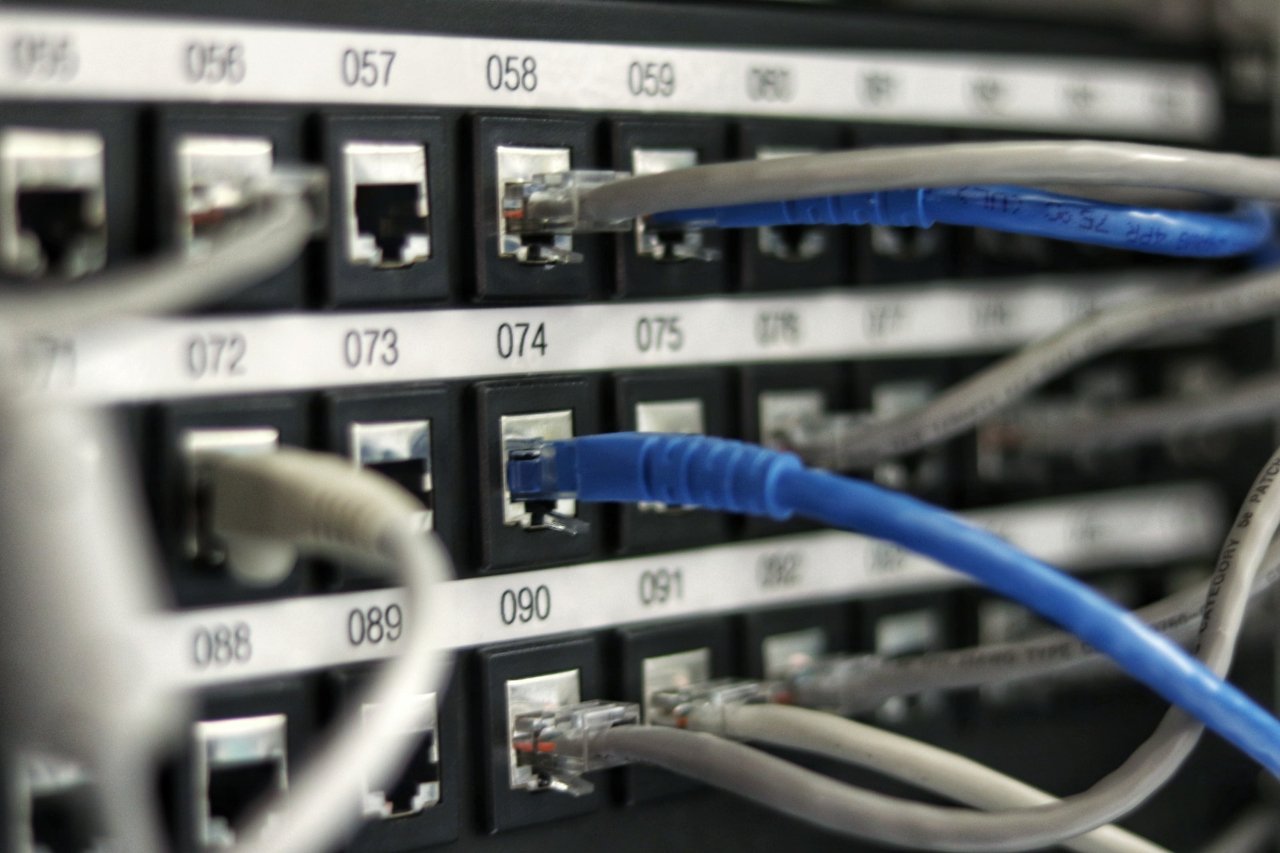
Investing in a quality data center infrastructure is essential for any organization that wants to make the most out of its data center capabilities. So, choosing the right server racks, networking equipment, and energy systems are all essential components of a successful data center business.
Moreover, Investing in the latest technologies can help organizations remain competitive and provide customers with reliable services.
Storage Solutions
Data centers can offer an array of different storage solutions, including cloud-based storage, on-premises storage, and more. With these types of solutions, it’s possible to store large amounts of data securely and access it quickly.
Also, organizations can take advantage of these storage solutions to improve their data processing speed, reduce costs, and increase efficiency.
Security

Security is one of the most important aspects of any data center business. So, without proper security measures in place, organizations are vulnerable to malicious attacks that could disrupt operations or cause financial losses.
By investing in the latest security technologies, organizations can ensure that their systems are safe from external threats.
Data Analytics
Data analytics is another area of the data center business that has significant potential for growth. By analyzing customer data, organizations can gain valuable insights into user behavior and better understand how to optimize their services.
Moreover, this type of analysis can help businesses make smarter decisions and develop more effective marketing strategies.
Data Center Automation
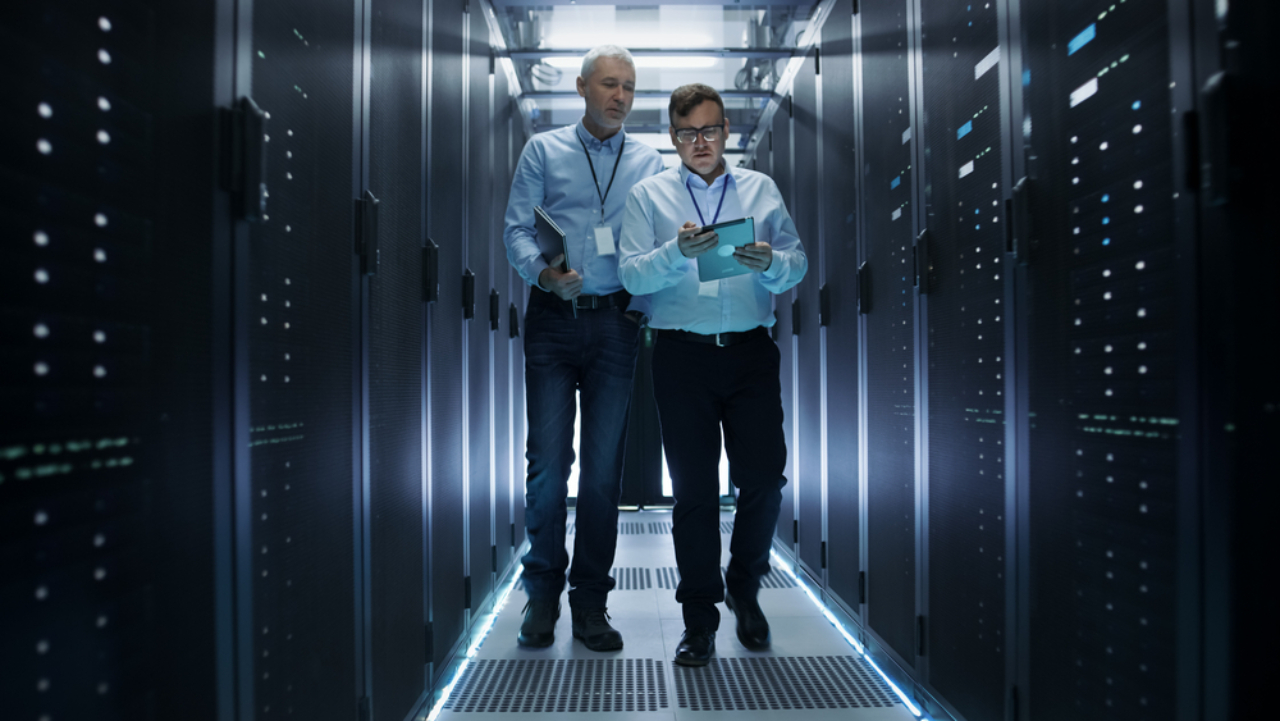
Automation is a key part of any data center business. By automating certain processes, organizations can reduce costs and improve performance.
This type of technology allows organizations to respond quickly to customer requests. Besides, it also ensures that their systems are running efficiently.
These are just a few of the possibilities available in the data center business.
Experience Unparalleled Connectivity with AiNET: Your Trusted Cloud Storage & Fiber Optic Internet Services Provider
AiNET is a trusted provider of secure cloud storage and fiber optic internet services. Besides, our solutions are designed to meet the needs of businesses, offering fast, reliable connectivity and scalability. Discover how AiNET can help power your business today.
Visit our website for more information about our comprehensive range of products and services!
Data center energy usage isn’t something that most people think about on a daily basis. However, it is an important factor to consider when running a business.
Data centers are responsible for consuming vast amounts of energy, and the costs associated with powering them can add up quickly. In order to stay competitive and efficient in today’s digitally-driven world, businesses need to change their perspective. They must understand what data center energy usage means for their operations.
Understanding Data Center Energy Consumption

Data centers consume enormous amounts of energy in order to power the servers, cooling systems, and networking equipment housed within them. This amount of energy consumption can have serious financial implications for any organization. Especially if the organization is relying on the infrastructure to operate its IT functions.
Fortunately, there are a number of steps you can take to reduce data center energy usage and keep costs under control.
The Basics of Data Center Energy Usage

We can typically divide data centers into two categories: large enterprise-level systems and smaller on-premise systems.
Enterprise-level systems require significantly more energy to run than on-premise systems. This is because they contain more equipment and need to maintain a certain level of redundancy. If they fail to do so, they can’t ensure maximum uptime.
On the other hand, an on-premise system usually contains fewer components but still requires power for cooling, networking, and other IT functions.
Data Center Efficiency Measures
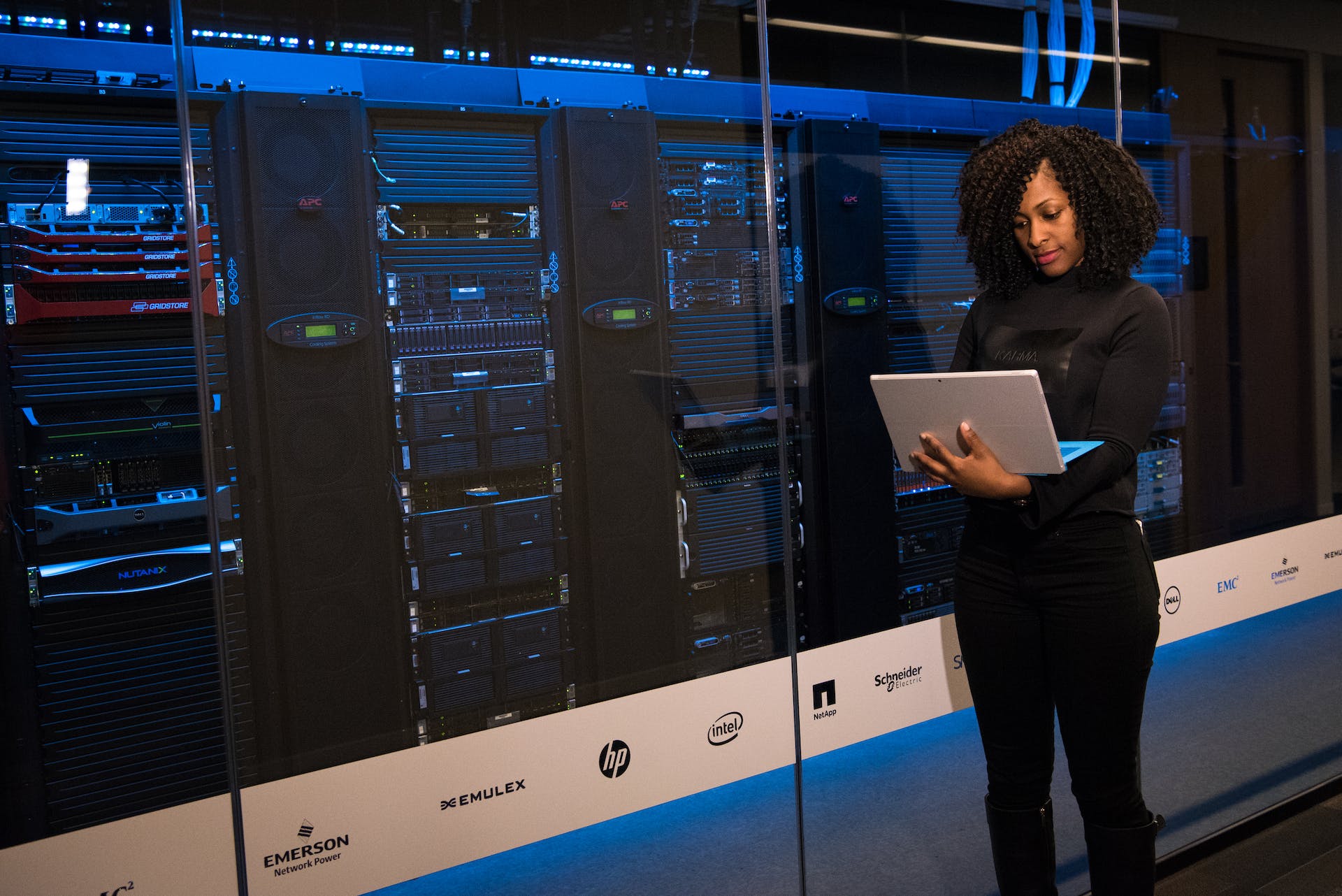
Data center efficiency measures involve everything from server consolidation and virtualization to the use of renewable energy sources.
Server consolidation is the process of reducing the number of physical servers in a data center, which can significantly reduce energy consumption.
Virtualization is also an important factor when it comes to efficiency. It allows for multiple virtual machines to run on one physical server.
Renewable energy sources such as solar, wind, and hydroelectricity are also becoming increasingly popular. They serve as good alternatives to traditional data center power sources. These renewable energy sources can help reduce costs while providing a clean and sustainable source of power.
Data Center Energy Optimization Techniques
In addition to the aforementioned measures, there are a number of other techniques you can use to optimize energy usage in a data center. This includes adjusting cooling settings, using efficient storage solutions such as flash storage, and taking advantage of power management tools.
AiNET offers secure, reliable cloud storage and fiber optic internet services for businesses. With their scalable solutions and high-speed connectivity, customers can enjoy increased productivity and peace of mind knowing their data is safe.
Visit AiNET to explore their robust selection of online storage options!
A data center is the heart of any business, as it is responsible for storing and managing an organization’s vital information. It’s critical to understand how a data center works in order to ensure its success.
In this article, we will explain the basic requirements and components needed in a successful data center and how they all work together.
Physical Infrastructure
The first component of a data center is the physical infrastructure, just like a building of a school. This includes racks, cabinets, servers, storage devices, and other hardware needed to operate the system.
It’s important to consider factors such as power and cooling needs when designing your data center. Without proper planning, it can lead to outages or degraded performance due to an inadequate power or cooling system.
Network Infrastructure

The second component is the network infrastructure, just like the staff and management in the school.
This component provides the connection between all devices in the data center. It’s responsible for managing traffic and providing mobility between components. TCP/IP networks are typically used as they provide reliable and secure communication while allowing for fast transfers of information.
The use of a Network Interface Card (NIC) is also helpful to ensure that communication between components is efficient.
Software Infrastructure
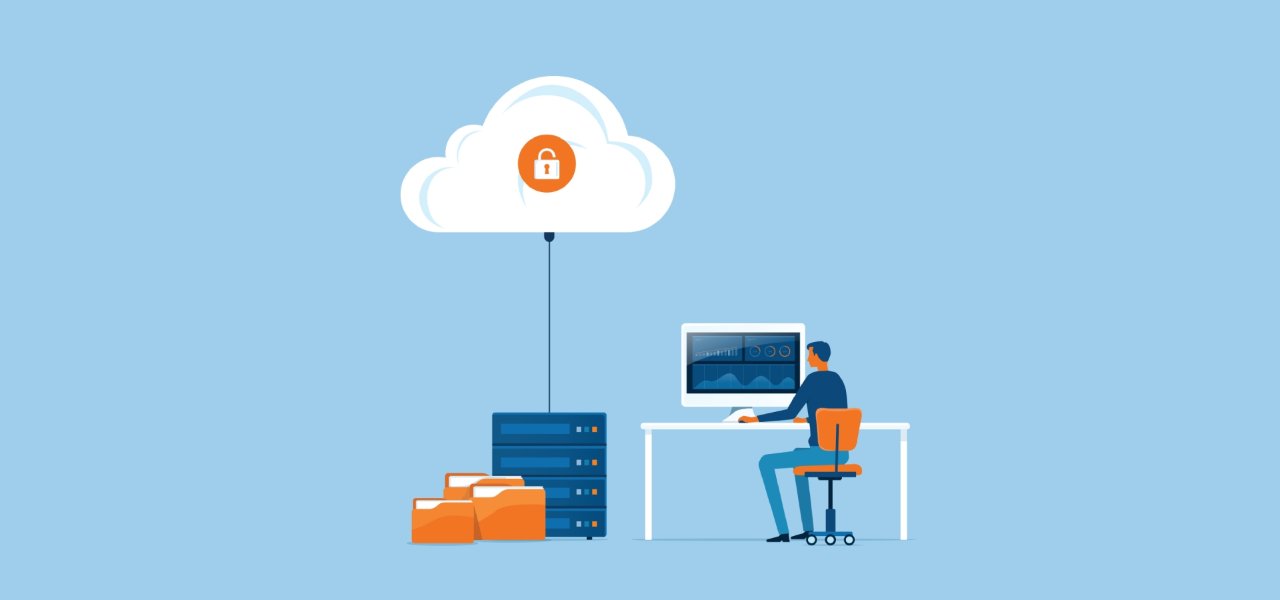
The third component is the software infrastructure, just like the records and files of the school that keeps track of everything.
This component provides additional functionality and allows for automation of tasks. It’s important to choose a system with features such as redundancy, scalability, and security in order to guarantee its performance.
Virtualization is also a great way to maximize the use of resources, as it allows for multiple systems to run on one physical server.
Maintenance and Management
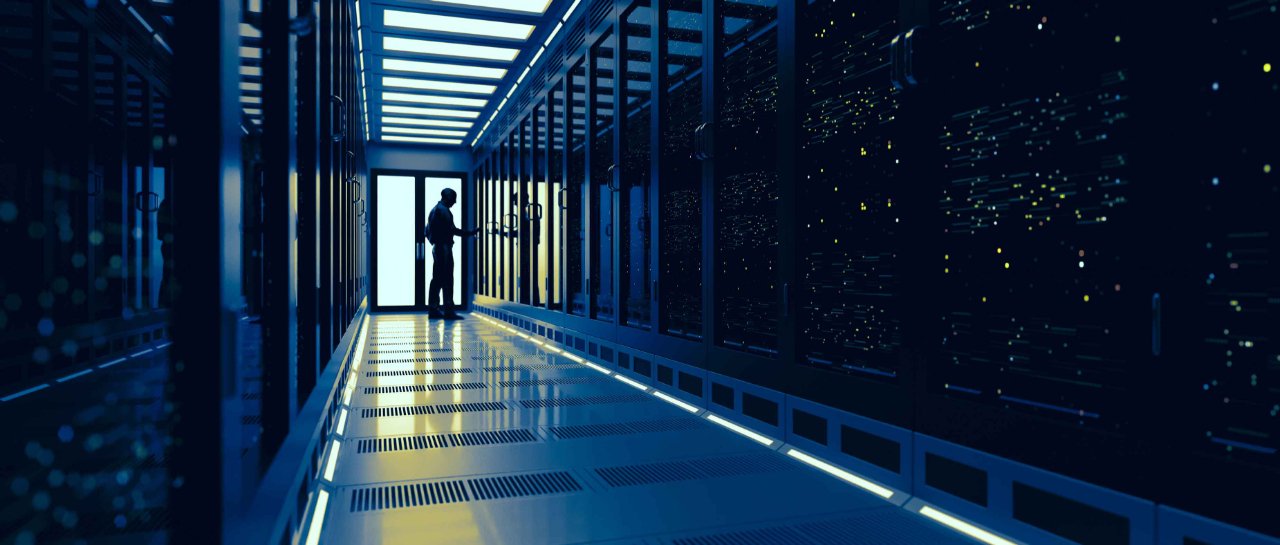
Data centers require proper maintenance and management in order to ensure optimal performance. This includes regular monitoring, patching, and upgrading processes.
It’s important to have an efficient system for keeping track of changes and prevent any issues from arising. Additionally, a disaster recovery plan should be implemented in case of emergency.
When taken into consideration along with other factors such as security and compliance requirements, an organization can ensure its data is safely stored and managed. By understanding the basics of how a data center works, businesses can confidently rely on their critical systems to keep operations running smoothly.
About AiNET
At AiNET, we provide our clients with an all-in-one solution for their IT infrastructure needs. Our comprehensive approach includes data center colocation, cloud storage and fiber optics network services. This allows for easy planning and management of any IT structure, creating a streamlined setup that helps businesses thrive. With AiNET at the helm, you can rest assured that you have the best infrastructure for your company. Get started today and take control of your IT situation at AiNET!
An overheated data center poses a critical risk, extending well beyond technical glitches to potentially catastrophic implications across various sectors. Beyond the immediate technical fallout, such as transaction delays or failures, the aftermath of an overheated data center can erode trust and disrupt the financial stability of an organization.
Any system relying on digital infrastructure stands compromised when servers fail due to excessive heat. It affects not only financial transactions but also essential services in healthcare, communication, and numerous other industries.
Combatting the Threat of Overheating
To mitigate the risks associated with overheating, data centers need to incorporate robust cooling systems. This includes everything from air conditioning units to state-of-the-art liquid cooling systems.
AiNET seamlessly integrates these cutting-edge cooling solutions to maintain an optimal and stable operational environment within its data centers.
The Threat of Overheating in Data Centers
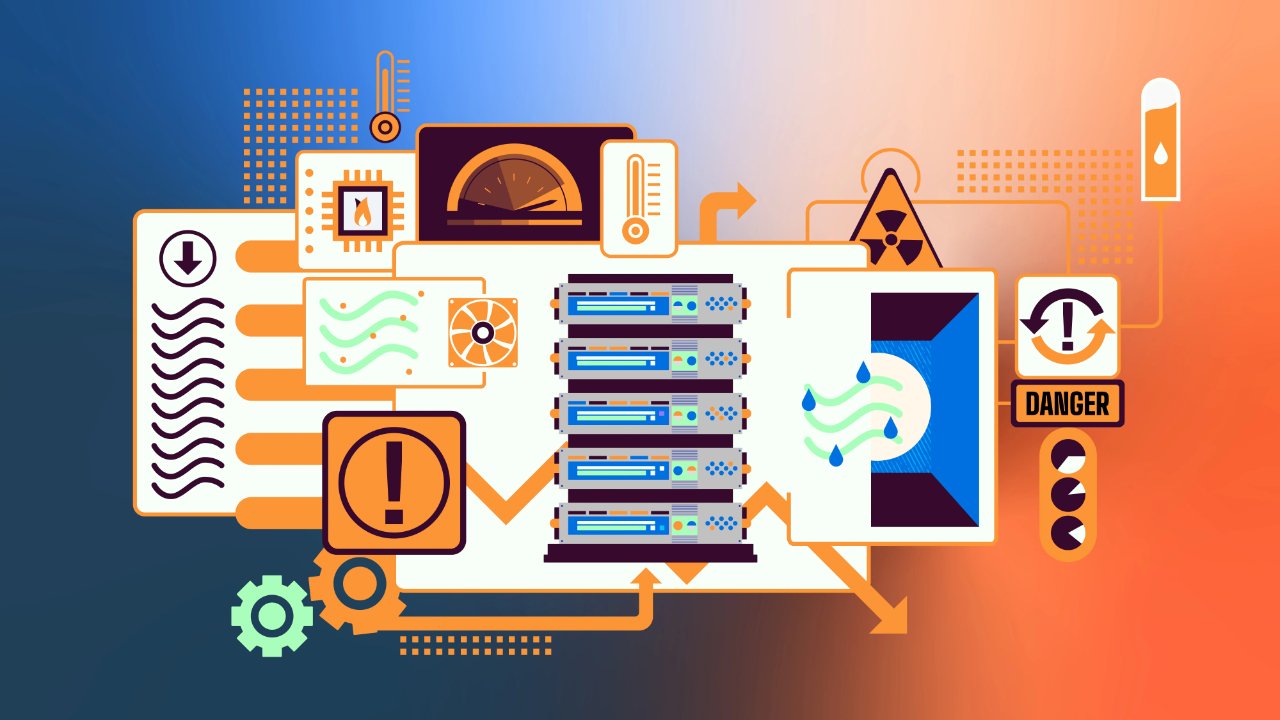
On October 14, 2023, two major banks in Singapore, DBS and Citibank, experienced outages that disrupted online banking services for around two days. This had a significant impact on customers and vendors who rely on digital financial systems.
The Monetary Authority of Singapore (MAS) has confirmed that the root cause of these outages was a technical issue with the cooling system at Equinix, a data center used by both banks. This led to an increase in temperature above the optimal operating range, resulting in full or partial unavailability of online banking apps.
According to Minister Alvin Tan, the outages caused 810,000 failed attempts to access the platforms, and 2.5 million payment and ATM transactions could not be completed. This highlights the heavy reliance on digital financial systems in Singapore and the need for robust IT disaster recovery and business continuity plans.
Contractor Blamed for Data Center Cooling System Mishap
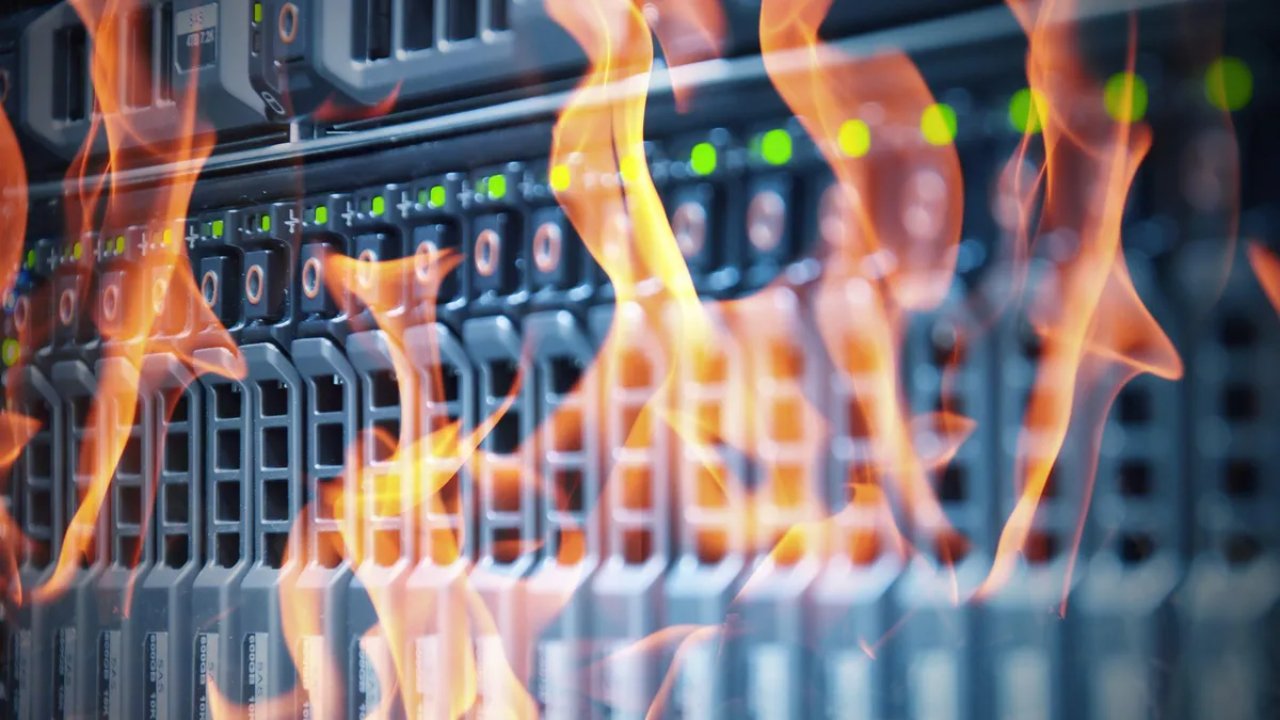
Equinix has reportedly blamed a contractor for incorrectly sending a signal to close valves from chilled water buffer tanks during a planned system upgrade. This mistake caused significant disruptions and left many questioning the reliability of the cooling system.
In response to the outage, both DBS and Citibank immediately activated their IT disaster recovery and business continuity plans. This swift action helped minimize the impact on customers, but it also raised concerns about the vulnerability of critical infrastructure such as data centers. AiNET, through its commitment to exceeding industry standards, invests continuously in robust infrastructure and cutting-edge failover mechanisms to ensure uninterrupted services, even in the face of unforeseen challenges.
Government Oversight and Business Preparedness for Disaster
Resilience

Overall, it is crucial for businesses to have robust disaster recovery plans in place to mitigate any potential disruptions. The Singapore government has also stated that it will be closely monitoring the situation. They will work with all parties involved to prevent similar incidents from occurring in the future.
The Role of Preventive Maintenance
Regular maintenance of cooling systems is crucial to prevent overheating. AiNET employs proactive monitoring systems that analyze environmental conditions within its data centers. These systems, utilizing advanced sensors and AI-driven algorithms, detect temperature variations, allowing for immediate corrective actions before issues escalate. This approach ensures a stable environment, effectively averting overheating concerns.
Conclusion
As technology continues to advance, businesses and service providers need to stay vigilant in protecting critical infrastructure and ensuring seamless operations for their customers. This incident serves as a valuable lesson that even the smallest oversight can have significant consequences in today’s digitalized world. If you want to find out more about Data Centers or similar content, please visit AiNET.
The internet is an essential part of our lives. We rely on it to stay connected, work efficiently, and access the latest information from around the world. For businesses, having reliable and fast data center internet is essential for success in today’s technology-driven world. With a high-speed connection, organizations can take advantage of new opportunities that would otherwise be unavailable.
Here are just a few ways that data center internet can open up new possibilities for your business.
Increased Productivity
Having access to reliable and fast internet enables businesses to run more efficiently by enabling them to complete tasks quickly and accurately. The time saved by using high-speed connections can be reinvested into other areas of the business. This allows businesses to take on more projects and become more productive as a whole.
Improved Collaboration
High-speed data center internet eliminates communication bottlenecks between employees and collaborators, allowing teams to work together more efficiently and effectively. With better connections in place, teams are able to access files quickly, share documents easily, and communicate without any delay or disruption!
Enhanced Customer Experience
Data center internet provides businesses with the opportunity to deliver better customer service by being able to process customer requests in a timely manner. Customers want answers fast! Having reliable data connections means companies can respond quickly and more accurately- leading to happier customers. And happier customers are, after all, the key to loyalty and profits.
Increased Availability
Data center internet is often more reliable than other types of internet connections, meaning businesses can stay connected even when other services may be disrupted or down. This helps organizations remain available to customers and employees when they need it the most.
Reduced Expenses
Using data center internet can help businesses save money as well as time by eliminating the need for expensive secondary networks or hardware. By connecting with a reliable high-speed connection, companies can streamline their operations and reduce costs while still maintaining top performance levels.
Data center internet offers businesses a host of possibilities that weren’t available in the past. With access to fast, reliable connections, organizations can unlock new opportunities to increase productivity, improve collaboration, enhance customer experiences, and reduce expenses. With this type of internet connection, businesses can remain competitive in the ever-changing landscape of technology.
AiNET provides the complete package for IT infrastructure needs. Get colocation, cloud storage, and fiber optics network from us to conveniently plan your IT systems. Our holistic approach ensures that all these services are integrated seamlessly with each other so you can focus on what matters most to you. Let AiNET take care of the rest!
With the ever-increasing amount of data being stored and managed, it is important to consider investing in server data centers. From increased security to improved performance, there are numerous advantages that come with investing in a server data center.
In this article, we will look at some of the primary benefits of investing in a server data center.
Improve Performance and Reliability
One of the main advantages of investing in a server data center is that it can greatly improve performance and reliability. Data centers are designed to be highly reliable. They have redundancies and backups built into their systems to prevent any data loss or system failure. This leads to improved performance, as well! Having multiple servers working together can provide faster speeds for tasks such as accessing files or performing calculations.
Increased Security
Data security is another major benefit of investing in a server data center. Server data centers are designed with advanced security measures in place, including encryption capabilities, access control lists, firewalls, and more. These measures protect the data stored in the data center from unauthorized access or malicious attacks. This ensures that only authorized personnel can gain access to it.
Cost Savings
Investing in a server data center can also lead to significant cost savings compared to managing and maintaining an on-premise IT infrastructure. Since servers are already set up and ready for use, businesses don’t have to spend time and money configuring them for their own needs. Furthermore, the costs associated with setting up a secure physical site are eliminated as well. This means that businesses can focus their resources on other areas rather than having to invest in expensive hardware and software solutions just to keep their systems running properly.
Scalability
Server data centers are also incredibly scalable, meaning they can be easily expanded to accommodate larger amounts of data. This is especially beneficial for businesses that anticipate their storage needs increasing over time. They won’t have to worry about investing in additional hardware or having to move their entire infrastructure when the need arises.
Flexibility
Lastly, server data centers offer a great deal of flexibility. Businesses can choose from various options, such as shared servers or dedicated servers, depending on their individual needs. Additionally, they can choose between virtual or physical infrastructure and pick the one that best fits their budget and technical requirements.
In conclusion, investing in a server data center provides numerous benefits for businesses looking to improve performance, security, scalability, and cost savings.
Take your cloud computing to the next level with AiNET! Discover the possibilities for your business today.
Ever wonder what the benefits are of modern data center servers versus a traditional IT infrastructure? Worry no more! We are here to provide you with all the data center information you could possibly need.
Firstly, data center servers are powerful and efficient computing resources that offer organizations a range of advantages. They provide enhanced processing power, improved scalability, increased flexibility, and greater efficiency than traditional IT infrastructures. By leveraging modern data centers, companies can better manage their workloads while optimizing performance and improving overall efficiency. This allows the company to worry less about their data security and concentrate more efforts on real business matters.
However, in order to maximize the performance of modern data center servers, it is important to properly configure them to suit the organization’s needs. This includes selecting the right hardware components and software applications for optimal use cases. To ensure peak performance and reliability, an experienced system administrator should be consulted if needed to make sure all configurations are set up correctly.
Below is an all-inclusive list of what to consider when selecting a modern data center for your business to use.
Hardware Choices
When selecting the best hardware for a modern data center server, it is important to consider the components that will provide the most optimal performance. This includes selecting CPUs, memory, and storage for each use case. High-end CPUs offer more power and scalability than lower-end models, but come at a higher price point. Memory provides an additional boost in performance and should be chosen based on capacity needs, and drives are vital for storing large amounts of data efficiently. Figure out what your business needs out of each of these components, and that will guide your selections.
Software Configurations
Software configurations are just as important as hardware when maximizing efficiency with modern data centers. When setting up applications such as databases or web servers, administrators need to ensure proper settings are in place so they can take full advantage of the server’s capabilities. Additionally, proper security measures should also be taken to protect the server from any malicious attacks.
Operating System
The operating system is a key component of the modern data center server and must be chosen carefully. Linux-based distributions are often preferred for their flexibility, scalability, and support for open-source applications. Windows Server is another popular choice for organizations that need legacy software compatibility. Virtualization can also help reduce hardware costs while providing an additional layer of security. Each business might need something unique out of their operating systems, so it is important to know what your business’ priorities are before making such a decision.
Energy Efficiency
Energy efficiency is becoming increasingly more important in data centers and server rooms due to increasing energy costs and environmental concerns. There are several techniques that can be employed to reduce energy consumption, including using green power sources and utilizing power management tools. Additionally, selecting the most energy-efficient hardware components can help reduce overall power consumption. Is energy efficiency important for your business? Is it obtainable alongside your other goals? All good things to think about!
Conclusion
By leveraging modern data center servers, organizations have the potential to maximize performance and efficiency towards their professional goals. However, using a modern data center to your advantage is tricky and multi-faceted. But with these tips for success, any organization can take advantage of the capabilities of modern data center servers to optimize performance and increase efficiency.
Discover private cloud solutions for businesses of any scale with AiNET. Our services are fully customizable to align with your specific business requirements. Reach out to us today and delve deeper into the comprehensive range of services we provide!
Hello there, fellow tech enthusiasts! Are you in search of an exceptional internet service provider, a reliable data center, and a secure cloud storage provider? Look no further! AiNET is here to revolutionize your online experience and cater to all your digital needs. With its unmatched reliability, security features, and unbeatable services, AiNET stands out as the ultimate choice for businesses and individuals alike.
Why should you choose AiNET over all other competitors? Let’s dive in and explore the fantastic features that make AiNET the top pick for internet services, data center solutions, and cloud storage.
Reliability
First and foremost, let’s talk about reliability. AiNET takes pride in its robust infrastructure, ensuring minimal downtime and uninterrupted connectivity. Whether you’re streaming your favorite shows, participating in video conferences, or running an online business, AiNET guarantees a stable and fast internet connection. Say goodbye to frustrating lags and hello to smooth browsing, all thanks to AiNET’s cutting-edge technology!
Security
But that’s not all. Security is a top priority at AiNET. With cyber threats on the rise, it’s crucial to safeguard your sensitive data. AiNET’s state-of-the-art security measures protect your information against unauthorized access and potential breaches. Our advanced encryption protocols and firewalls ensure that your data remains secure within our data centers and cloud storage solutions. Rest easy knowing that AiNET has your back when it comes to digital security.
When it comes to internet services, AiNET takes the lead by providing the best in class. With lightning-fast speeds and unlimited bandwidth, you can effortlessly browse, stream, and download to your heart’s content. AiNET’s dedicated customer support team is always available to address any concerns and provide quick solutions, ensuring a hassle-free experience. From residential customers to large corporations, AiNET caters to all audiences, offering customizable plans tailored to suit your unique requirements.
Are you in need of reliable data center services? AiNET’s cutting-edge facilities house a vast network of servers, ensuring the seamless operation of your digital infrastructure. With redundant power supplies, backup systems, and robust cooling mechanisms, AiNET’s data centers are designed to handle even the most demanding workloads. Trust AiNET to keep your servers up and running smoothly, empowering your business to reach new heights.
Cloud Storage
Last but certainly not least, let’s talk about cloud storage. AiNET’s cloud storage solutions provide a secure and convenient way to store and access your data from anywhere, at any time. With scalable storage options and automated backup features, you can say goodbye to worries about losing your important files. AiNET’s cloud storage services are reliable, efficient, and easily integrated into your existing workflow, making it the perfect choice for individuals and businesses alike.
In conclusion, AiNET is your one-stop solution for all your internet service, data center, and cloud storage needs. Opting for AiNET means choosing reliability, security, and top-notch service. Join the AiNET family today and experience the power of seamless connectivity, unbeatable security, and exceptional customer support. Don’t wait any longer – revolutionize your online experience with AiNET!
Remember, the power of AiNET is just a click away!

